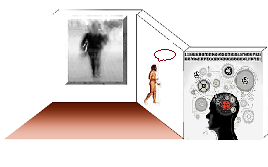
Truth & Method and Inductive Logic
As we have already explained, the revised sketch of The Problem of Historical Consciousness  after the writing of Truth and Method, the maximal work of Hans-Georg Gadamer, is a good introduction to this work which clarifies many questions of contemporary philosophy: its problem which is clear Among others is its relation to social change, the question of method and especially what is true, but will have no less important minor points, such as dialogue.
after the writing of Truth and Method, the maximal work of Hans-Georg Gadamer, is a good introduction to this work which clarifies many questions of contemporary philosophy: its problem which is clear Among others is its relation to social change, the question of method and especially what is true, but will have no less important minor points, such as dialogue.
Taking up the humanist tradition, he will re-read St. Thomas, St. Augustine and Vico, and clarifies the main problem of the philosophy of our time: “it differs from the classical tradition of philosophy because it does not represent an immediate and uninterrupted continuation of the latter.” Gadamer, 1997, p.35).
He criticizes the instrumentalisation of philosophical thought in the West that made him: whose relations with concepts became “a strange disengagement, whether their relations with these concepts are of the sort of erudite, not to say archaizing, or of the sort of technical manipulation , Which makes of concepts something like tools “(p.36).
He will critique what is called as the sciences of the spirit and will place as transcendent within an aesthetic dimension, denying the context of the logic of Stuart Mill, who claims to have a more correct formulation in the Treatise of Human Nature, and all the misconception of this concept.
He quotes the author J.G.Droysen, a scholar of the history of Hellenism, as an important attempt to give a new sense to history: “that the sciences of spirit should be founded in the same way as an independent group of sciences.” (Page 43).
He points to Stuart Mill’s induction logic, and even criticizes Scherer and Dilthey in stating that even these: “it remains the model of the natural sciences that guides the scientific self-conception of both” (page 44), it is easy to observe the consequences of A model that proposes to be critical of the romantic model, but ends up returning to its own core.
He asserts that even Dilthey came to the conclusion that Helmhotz made, that there is no method for the sciences of the spirit, and that method here: “If the other conditions, under which the sciences of the spirit are, Their way of working, perhaps much more important than inductive logic. “(Page 45)
We can not deny it, after all, Hegel wrote the Phenomenology of the Spirit, and even his critics sought a method to adjust it to historical consciousness, he clarified that the answer they gave “to this question is not enough … follow Kant, for being guided by the concept Of science and of knowledge according to the model of the natural sciences and to seek the striking singularity of the sciences of the spirit in the artistic moment (artistic feeling, artistic induction) “(page 45)
GADAMER, H.G. Truth and Method, London,New York: Continuum, 1975. (pages in Brazilian Edition).









